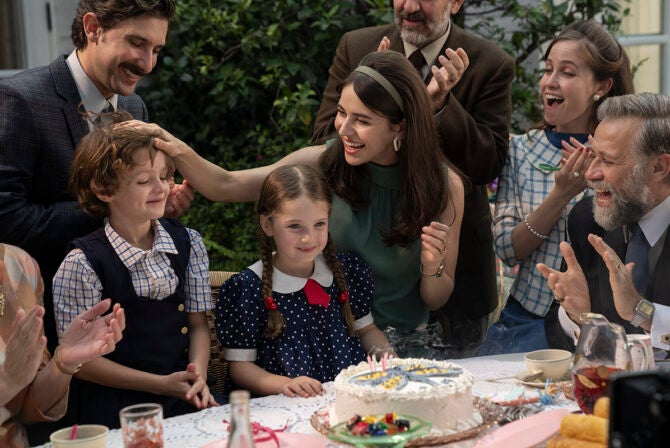Some people believe that children are just too young to understand the meaning of death, that they shouldn’t be burdened with thoughts they cannot possibly grasp, and that they should be spared adult grief.
But children growing up today are well aware of the reality of death. They seem to have built-in lie detectors and know something ominous is occurring in their small world. We cannot protect them from the tragedies of life, but we can exercise considerable influence by modeling healthy attitudes.
There are many variables that affect children’s understanding of death, such as who died, where, when, and how, and how the death will affect the child, as well as the child’s prior experiences with loss. And of course, there is the developmental age. It is important to remember that children of the same age may differ widely in their comprehension and behavior. It is impossible to fit perceptions into a fixed age category. For all of us, the meaning of death changes as our life changes. The following are but general guidelines that might prove helpful.
Preschool Age Children
Although an infant may not have an understanding of the word death, babies and toddlers do react to loss. Changes in the emotional atmosphere of the home and in the responses of significant others may upset the child and result in variations in crying and eating patterns and in bowel or bladder disturbances.
Small children have a pervasive fear of being abandoned. After a death in the family, children with separation anxiety may be afraid to go to school, camp, or even to sleep over at a friend’s home. They frequently demand excessive attention from parents, cling to them, follow them around, climb into their bed at night. They fear that if they become separated either they or their parents will come to harm. Some children are not able to concentrate on their activities, become withdrawn from their friends, and are in general apathetic and depressed.
 Even children without separation anxiety may experience an intensification of normal anxieties when a loved one dies. For example, they may exhibit fear of the dark, of going to sleep, of going to a new place, or of a parent going on a business trip. Youngsters often regress to a behavior that had been given up prior to the death, with a return to thumb-sucking or bed-wetting.
Even children without separation anxiety may experience an intensification of normal anxieties when a loved one dies. For example, they may exhibit fear of the dark, of going to sleep, of going to a new place, or of a parent going on a business trip. Youngsters often regress to a behavior that had been given up prior to the death, with a return to thumb-sucking or bed-wetting.
A preschool child may not believe that death is final. She may think that death is like sleep: you are asleep, then you wake up. Or that it is like taking a journey: you go away, and then you come back. A child experiences some aspects of what he or she considers “death” when her father or mother goes to work. It is like playing “peek-a-boo” (an expression that comes from the Old English, meaning “alive or dead”). One moment you are here, then you are not.
The understanding of time for preschoolers is limited. Even after the funeral, parents may be shocked by the question, “When is Aunt Rachael coming back?” Although the child may not fully understand the answer, your explanation should be, “Aunt Rachael cannot come back because she is dead.” Try to emphasize again and again in words that the youngster can understand that death is not just a temporary phenomenon.
Many younger children think of death as accidental: One dies when run over by a car or attacked by robbers. Death is often associated with violence, particularly dismemberment. In their understanding, death is not inevitable–people may live forever if they are fortunate and careful.
What You Can Do
Some children may understand death as being less alive. For those three- to four-year-olds who seem to believe in the interchangeability of life and death, or believe that the dead are “waiting to live in another place,” parents must listen to the children’s thoughts, concerns, images, and experiences. Hear their questions: “Do dead people eat the same kinds of food we do?” “Can they watch television?” “Can they talk to each other?”
Repeat again and again that the person is not coming back to life and is not living in the cemetery. Explain that the death is not a punishment for bad behavior. Youngsters are rightly curious and anxious about death, with its separation from familiar people and the anxiety, terror, and fear which that separation brings. When words fail, touch them, hold them, show them your affection and love.
Ages Five to Nine
Because of their life experiences, youngsters this age are better able to understand the meaning of physical death. Death is final. Living things must die. But they may not think of it as happening to them. At this stage, they may neither deny death nor accept its inevitability. A compromise is made. Death is “real”–but only for others, the aged.
Some tend to consider death comes in the form of a person or spirit. Those who watch horror shows may believe death is a bogeyman, a skeleton, or a ghost that makes the rounds late at night and selectively carries away helpless victims.
What You Can Do
Children in this age range cope best when they receive simple, honest, and accurate information. If they desire, let them attend the funeral for that which is more visible and mentionable is clearly more manageable. Don’t be afraid to show your grief. Adults’ controlled behavior is more difficult for them to handle than expressed sorrow.
Reprinted with permission from www.jewishfamily.com.







